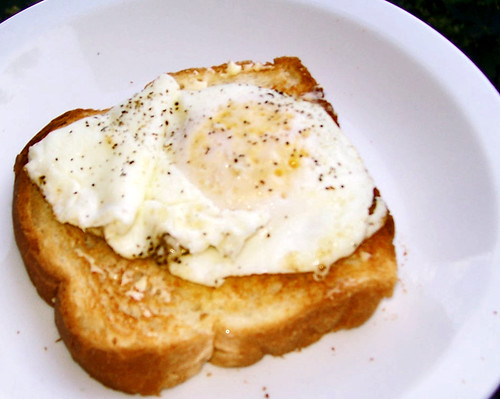Sometimes, figuring out what is healthy is confusing. The media seems to report something, then scientists come along and contradict it practically the next week. For example, eggs. Eggs used to be good, a great source of protein. Then eggs were bad, too high in cholesterol. Now eggs are good again, a great source of protein and what do you know, dietary cholesterol doesn't affect our blood cholesterol as much as we used to think (its really trans fat and high sugar that increase blood cholesterol).
Recently, supplements have been in the category of "contradictory and confusing topics". Some studies show they are good, while others show they are not so good. Often, it's just that new technologies are more sophisticated and discount older research. Sometimes news can be confusing because it's not apples-to-apples comparisons with each story. For example, fiber lowers cholesterol in people with high blood cholesterol but not in people with lower cholesterol. A journalist might not know that so they may blast a story that fiber doesn't work in their publication and ignore the fact that the subjects had perfectly healthy cholesterol to begin with. And other time, a food or supplement may be beneficial for one thing but not another.
For example, a recent paper just summed up the research on calcium and vitamin D supplements as follows: "the treatment of 1000 women with calcium plus vitamin D for 5 y would prevent 5 breast cancers and 1 colorectal cancer, and might prevent 1 fracture and 2 deaths, but would cause 4 myocardial infarctions [heart attacks] or strokes".
Make sense?
Um, not so much, right? But this seems to be how many things net out in nutrition. Take alcohol for example...1-2 glasses a day can reduce risk for having a heart attack, but it also increase risk for cancer (including breast cancer for women). It's almost like you're damned if you do, and damned if you don't.
My interpretation of this is a little bit different. For one, this shows me that we need to do more research to understand what is going on. What about vitamin D alone...does that show the same thing? What about if the calcium and vitamin D came from food instead of a supplement, would we see the same thing? And if its true that calcium and/or vitamin D increases heart attacks, is that in everyone or only people at risk already for a heart attack?
Second, this suggests that we all need to be savvy with our health and make personal decisions based on our family history. For example, if your mother had breast cancer, then perhaps taking a calcium plus vitamin D supplement isn't a bad idea. If both of your parents suffered from cardiovascular disease, then probably not something you want to do (although drinking would be a good idea so you've got that going for you).
Think it over while enjoying a veggie frittata and high-fiber slice of toast...it seems we're all safe eating those foods (allergies not withstanding). At least this week. ;)



































